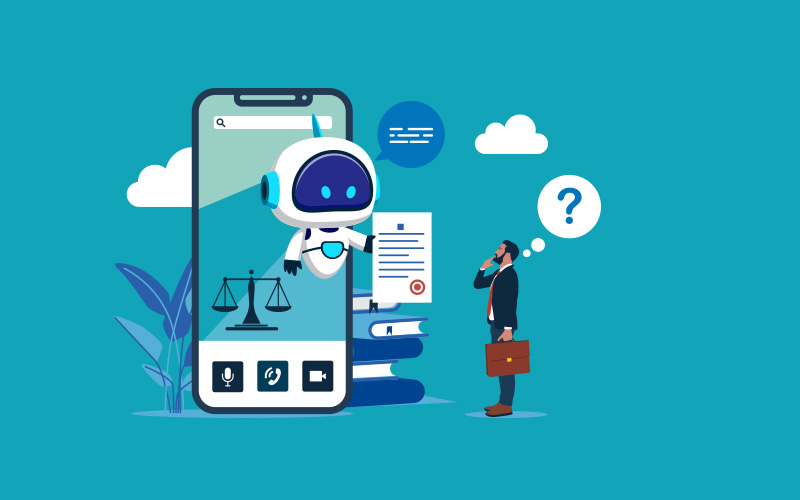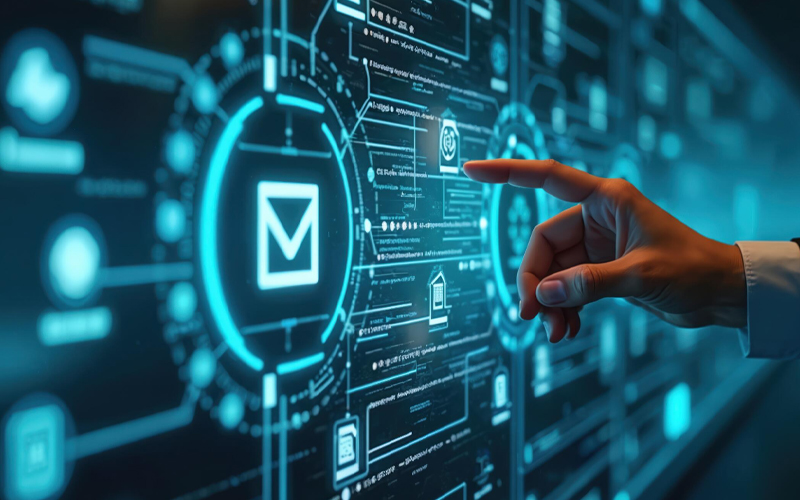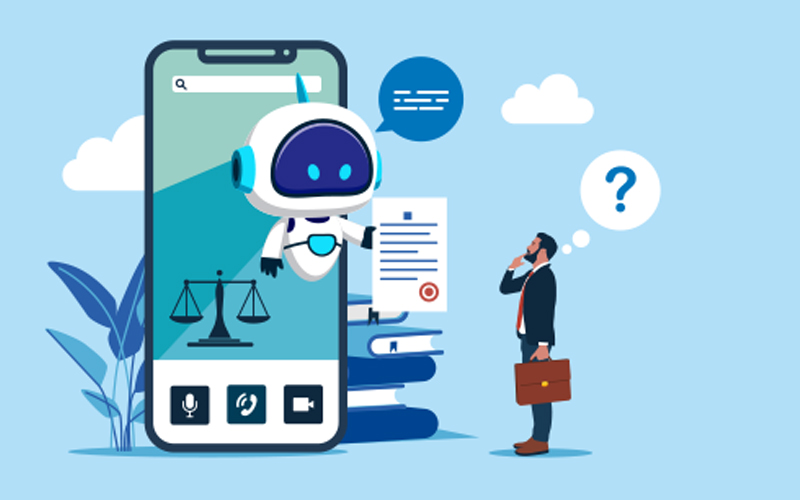The legal space has been slow to adopt technology, but that’s changing rapidly as legal professionals realise the vast benefits of modern technology. Legal leaders now know that the new economy requires a change in pace. The COVID-19 pandemic ensured a slew of opportunities spurred by digitisation of businesses. Digital transformation has been a gamechanger for most industries, so, why not for the legal space? Legal businesses and functions have had to embrace automation in several areas, and especially in the corporate world, where businesses have undergone extensive digitisation. With transactional automation in progress, legal departments are now looking to technology in a bid to align with business goals. According to a Gartner study, legal departments are expected to spend as much as three times more on legal technology by 2025. The staid legal department is fast set to be replaced by a dynamic entity that drives business outcomes.
How technology is impacting the legal profession
Consequent to the digital transformation of businesses, the C-suite has several new expectations of the corporate legal function. This includes leveraging technology and enterprise-wide data to be able to proactively predict risk. By embracing artificial intelligence and machine learning, the legal department will be empowered to offer insightful and data-driven solutions for business problems and challenges, as well as predict likely outcomes. Technology innovations can transform the legal space in several ways. Let’s take a look at the key areas where legal technology can create a significant impact.
Improved efficiency and productivity
Legal tech platforms automate tedious manual and repetitive tasks. With automation, companies have access to centralised case management, contract management and automated workflows. Digitised case management enables scheduling, centralised contact lists, document management and billing. Lawyers can focus on core legal work and the needs of the client. Digitising document management creates a centralised repository of legal knowledge, with authorisation and access controls in place, so that the right employee has access to the right information at the right time. eDiscovery empowers lawyers with instantaneous access to information, instead of having to sift through hundreds of papers manually. With a legal tech platform, companies can be assured of higher efficiency, accuracy and productivity.
Meeting compliance requirements
While many legal tech platforms have built-in compliance-adherence features, compliance technology specifically helps lawyers with cybersecurity, data security and any evolving compliance regulations. Compliance platforms help companies organise, store and manage the data as per regulatory requirements. Reporting to clients and other stakeholders is streamlined, and is part of automated workflows resulting in greater transparency. Compliance technology also leverages Artificial Intelligence (AI) and machine learning (ML), to assess risks, as well as changes in regulations, which in turn will result in proactive process change. Using AI and ML in conjunction with big data gives enterprises the ability to predict risks for clients and red flag any potential risks. With data privacy and security laws undergoing changes across countries, automation could help companies and their clients quickly ramp up to be compliant with the latest regulations.
Unified communication and collaboration
As enterprises become increasingly customer-centric, the legal department too has to provide the best possible customer experience. The digital transformation of the legal function enables transparency in communication with regard to contracts and case data. Lawyers and legal professionals can access systems remotely, and on a need-basis they can send reports directly to senior management and clients, creating a streamlined communication path.
Intelligent automation
In a highly competitive space, legal professionals are often hard-pressed to be “always on” for clients. However, with intelligent solutions that leverage AI and ML, firms and legal departments can deploy chatbots to answer first-level customer queries, and frequently asked questions, before actually connecting them to legal staff. The accelerated adoption of AI across industries is likely to support lawyers by attending to mundane tasks, while they remain focused on tasks requiring human interaction and intelligence.
Cognitive analytics
Reviewing contracts and documents is a time-consuming process. Armed with natural language processing and AI/ML technologies, applications can analyse contracts, and conversation threads, and offer insights and refinements to documents thereby saving precious time and costs for lawyers and legal aids.
Even though the legal tech space is growing by leaps and bounds, the sensitive nature of the documents and data in this space throws up several challenges. Cybersecurity threats are always looming, and data privacy regulations change by country and region. A tight security-and-access infrastructure is required to protect legal data. To derive true value from legal technology, firms must use automation to rectify specific issues, instead of going for the whole hog. Corporate legal leaders need to prioritise their spend on legal technology to derive the best business outcomes. With a positive growth mindset, organisations can leverage legal technology to further drive the digital transformation* narrative using legal service outsourcing.
*For organizations on the digital transformation journey, agility is key in responding to a rapidly changing technology and business landscape. Now more than ever, it is crucial to deliver and exceed on organizational expectations with a robust digital mindset backed by innovation. Enabling businesses to sense, learn, respond, and evolve like a living organism, will be imperative for business excellence going forward. A comprehensive, yet modular suite of services is doing exactly that. Equipping organizations with intuitive decision-making automatically at scale, actionable insights based on real-time solutions, anytime/anywhere experience, and in-depth data visibility across functions leading to hyper-productivity, Live Enterprise is building connected organizations that are innovating collaboratively for the future.








